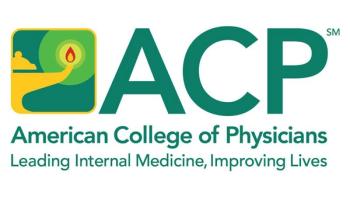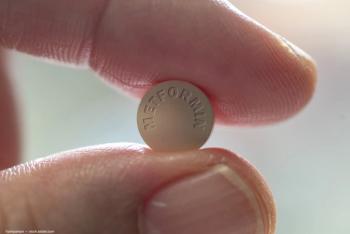
The 21st Annual Angiogenesis, Exudation, and Degeneration 2024 Conference: A 1-day virtual event of all things retina
This meeting, scheduled for Saturday, February 3, 2024, is a 1-day virtual event sponsored by the Bascom Palmer Eye Institute, Miami, University of Miami Health System.
Calling all Retina clinicians: Add the annual Angiogenesis, Exudation, and Degeneration 2024 conference to the must list on your conference calendar.
This meeting, scheduled for Saturday, February 3, 2024., is a 1-day virtual event sponsored by the Bascom Palmer Eye Institute, Miami, University of Miami Health System.
The course co-directors, all from the Bascom Palmer Eye Institute, University of Miami Miller School of Medicine, Miami, are Philip J. Rosenfeld, MD, PhD, Harry W. Flynn, Jr., MD, and Thomas A. Albini, MD.
According to the co-directors, “The program will feature an exceptional group of basic scientists, clinicians, and healthcare experts, all focused on understanding and treating neovascular, exudative, and degenerative diseases of the eye. The program will highlight the revolutionary pharmacotherapies now in development and clinical practice for the management of neovascular age-related macular degeneration, macular edema, diabetic retinopathy, retinopathy of prematurity, and inherited retinal degenerations with a special emphasis on the present and future financial impact of these drugs on clinical practices and Medicare.”
The complete program, which can be viewed at
The following is a list of talks that are available in the morning sessions that attendees can look forward to. All times listed are Eastern Standard Time. The afternoon talks in each session are available in the accompanying article.
8:00 am: OCTomics — Topics include: New Imaging Findings from High-Res OCT: Trizonal Distribution of Drusen and SDD with En Face OCT Maps to Photoreceptor Density; Multimodal Assessment of OCT Biomarkers of GA and its Precursors; Precursor Lesions for Development of Atrophy in AMD; A Comparison Between the Grading of iRORA and cRORA on OCT B-Scans with the Grading of Persistent Hype transmission Defects on En Face OCT images; Algorithms to Detect and Quantify Drusen, Choroidal Hypertransmission Defects, and Hyperpigmentation Applicable to Both SD-OCTA and SS-OCTA Scans; SS-OCTA Imaging of High-Risk OCT Biomarkers that Predict Disease Progression in Intermediate AMD; Automated Segmentation and Quantification of Calcifying Drusen Applicable to Both SD-OCT and SS-OCT Scans; Automated Detection of Choroidal Hypertransmission Defects with Both SD-OCTA and SS-OCTA Scans; Automated Measurement of Outer Retinal Thickness as a Biomarker for Assessing AMD Progression; SS-OCT Angiography for Mapping Retinal Capillary Structure and Assessing Flow
10:00 am: Non-Exudative AMD —Talks include: Early Onset AMD: Lessons to Learn; Zonal Resolution of Widespread Drusen; Lysolipids are Prominent in Subretinal Drusenoid Deposits; The Importance of Basal Laminar Deposits in AMD; Classification and Regression Tree (CART) Analyses for Intermediate Age-Related Macular Degeneration---AREDS/AREDS2; Impact of Risk Factors on Progression and Vision Impairment of Geographic Atrophy in a Korean Patient Cohort; Predictors of GA Development in Type 3 MNV Treated with Anti-VEGF Therapy; Foundation Models and AMD
11:20 am: Emerging Therapies for Non-Exudative AMD —Topics covered are: Balloon Angioplasty for AMD: An Update; Optogenetics for Restoring Vision in Geographic Atrophy Secondary to Advanced AMD; AVD-104 for Geographic Atrophy: Glyco-Immunologic Modulation of Macrophage Activity; Retinal Structure Improvements with OpRegen RPE Cell Therapy in a Phase I/IIa Study in Geographic Atrophy; Protection from Vision Loss Secondary to GA through C1q Inhibition: Results of the ARCHER Study Evaluating ANX007; Elamipretide Update - Entering Phase 3; LIGHTSITE III 24-Month Analysis: Evaluation of Multiwavelength Photobiomodulation in Dry Age-Related Macular Degeneration.
Those interested can use the following link to register:
Course objectives
The course objectives include the following:
- Examine new evidence for understanding the pathophysiology in nonexudative age-related macular degeneration
- Examine new evidence for predicting disease progression in nonexudative age-related macular degeneration
- Evaluate the benefits and limitations of different imaging and visual function technologies in the diagnosis and clinical management of macular and retinal diseases
- Incorporate the latest advances in artificial intelligence, specifically machine learning, for the diagnosis and treatment of retinal diseases
- Evaluate emerging therapies for the treatment of nonexudative age-related macular degeneration and review the real-world outcomes following the use of complement inhibitors in clinical practice to better understand the population most likely to benefit from these drugs once they are approved
- Evaluate therapies targeting novel disease pathways being investigated in early-stage clinical trials for nonexudative age-related macular degeneration
- Provide an update on the next generation of anti-VEGF therapies recently approved and currently in development
- Evaluate the clinical use of available anti-VEGF drugs for exudative ocular diseases
Newsletter
Keep your retina practice on the forefront—subscribe for expert analysis and emerging trends in retinal disease management.




























